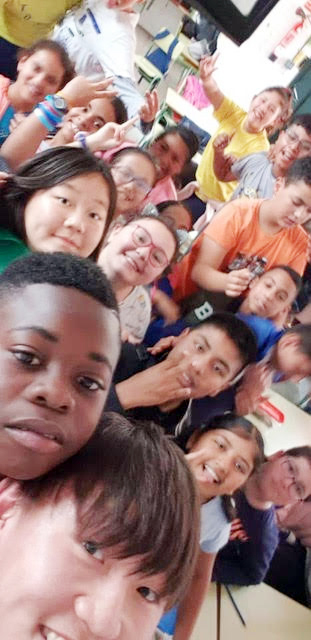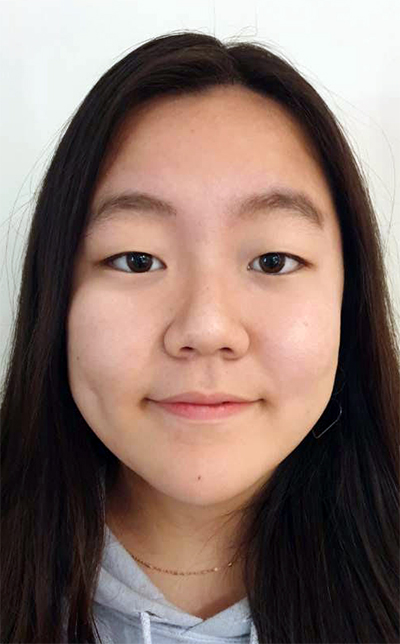Every Wednesday since 2018, I have been lucky enough to participate in a program called “Sharing to Learn.” This program gives me and other students the opportunity to teach English to the local Spanish-speaking children of Barcelona. As an aspiring teacher, this was a perfect activity for me to practice educating children. But this program had one rule that absolutely no one should disobey, no speaking Spanish. The head of the program didn’t want us to be able to speak or understand Spanish, because they thought that if the children knew that we spoke Spanish, they would lose their motivation to learn English. Because of this one rule, I ended up teaching two classes while pretending that I was a student-teacher who knew nothing about Spanish.
At first, I was as scared as I was excited to meet my new students. I was scared because as an Asian living in Spain, I had faced a lot of discrimination. I thought that because my brother (my partner in the program) and I were Asians teaching them English, the young children would undoubtedly look at us with skepticism. When my brother and I first entered the classroom, I heard the kids whispering “Son Chinos” (which is Spanish for “They’re Chinese”) to each other with looks of surprise on their faces. I understood what they were saying, but I had to force myself to look at them as if I had no idea what they were talking about. At that moment, I thought teaching the class was going to be very challenging.

Of course, the teaching was no easy job, trying to make 24 Spanish kids learn a new language was a struggle. I remember getting frustrated at myself during the first few classes because I wasn’t able to explain topics well enough and the children couldn’t understand either. The first few weeks were a personal challenge for me, because I had to get accustomed to teaching English and get to know these children who seemed so different from me. But as time passed, teaching became easier and surprisingly we got to know each other better. From being fans of Son Heung Min to having the same favorite color of blue, we bonded over our similarities. This experience made me realize that, even though we seem so different, we may be quite similar after all.
I have many memorable stories from teaching that class. One of the most vivid ones happened when I had to teach vocabulary for outdoor activities to a group of kids. As I was working hard to explain the meaning of each verb, I heard the students saying “Ella es muy amable” (or “She’s very nice” in English) to one another. Those four words made me feel very appreciated for my work and motivated me to work even harder.

There is a Spanish idiom that always comes to my mind when I think of my students. It is: “Tomar el pelo.” This idiom is used when someone tricks or makes fun of someone else in a good-natured way. It comes to my mind now because I successfully tricked 24 students into thinking that I had no Spanish-speaking ability at all. In the end, this experience gave me the opportunity to teach children for the first time and work toward my dream of becoming a teacher. Most importantly, I realized that language is not a barrier that separates people. If we can open our arms and accept and understand each other better, we can make a better world for all of us.

Yujin Choi
Sophomore (Grade 10)
American School of Barcelona

